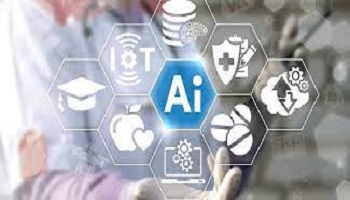The Promise and Perils of AI: Balancing Innovation with Responsibility

Artificial Intelligence (AI) has the ability to transform the way we live, work and interact with each other. AI-powered applications are being developed at an accelerated pace, offering solutions that help us make better decisions, enhance productivity, and automate mundane tasks. But amidst the promise of AI, there also come perils that need to be addressed. AI comes with the responsibility to develop ways to ensure that it is being used in the right way for the betterment of society.
AI is advancing at a lightning-fast speed, and it has the potential to propel us into new frontiers where machines can perform tasks that seemingly only humans can, such as driving a car, diagnosing a disease, and writing news reports. The benefits that AI can bring are vast, but they also come with certain risks. One of the main concerns surrounding AI is the potential impact on employment. It is expected that many jobs will become automated, requiring human workers to gain new skills to remain relevant in the workforce. The loss of jobs may disproportionately affect certain groups of people, creating economic inequality.
Another area of concern is the possibility of AI being used to manipulate information or harm people. AI has the ability to learn from data and make decisions, and if given inaccurate or biased data, it can make decisions that harm individuals or society as a whole. This has implications for issues such as privacy and security, as well as ethical considerations, such as who is responsible for the actions of AI.
As the development of AI technologies continues, it is important for businesses, policymakers, and society as a whole to consider the social and ethical implications of this technology. Collaboration between these groups is necessary to establish a framework that ensures AI is developed and used in a responsible way. This includes developing standards and regulations that ensure accountability and transparency, as well as educating the public about the potential benefits and risks of AI.
To achieve this, ethical guidelines need to be established to ensure that AI is being used for the betterment of society. Ethics and the morality of AI are issues that require careful consideration and debate. Those developing AI need to be mindful of how the technology can impact individuals and society, and how to mitigate any negative effects. Part of this process includes fair and unbiased data sets that feed into the algorithms that AI rely on.
It is up to us, as a society, to balance innovation with responsibility. We need to work collaboratively to harness the potential of AI while also considering the impacts on society. This includes ensuring that AI is developed in a way that aligns with the values and morals of society as a whole. With the right approach, AI has the potential to create a brighter future for us all.


